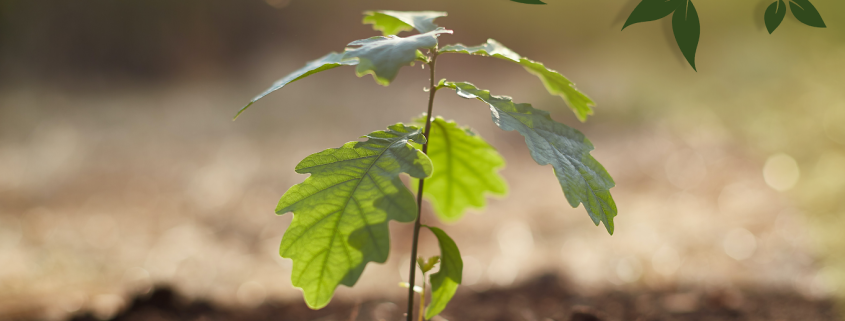Triple Bottom Line: The tragedy of the humans

Welcome to the final installment of “Triple Bottom Line.” It’s been two years of biweekly articles, and honestly, I’m burnt out. There’s nothing quite like writing about the impending doom of the planet as we know it to take the wind out of your sails.
I’ve been brainstorming for weeks, trying to think of one final message for anyone out there who may be reading this. The truth is, if I had the answers, there wouldn’t be a need for this column in the first place.
One of the very first lessons you’ll learn in any environmental crash course is the tragedy of the commons. It’s a classic economic paradigm that sums up the climate crisis in a nutshell — when individuals have access to a shared resource, they act in their own interest, often at the expense of others, resulting in overconsumption and consequent depletion of the public good.
While this is a common climate phenomenon — depleting nonrenewable fuel sources and overfishing far beyond a sustainable rate, to name a few examples — it also emphasizes the human-centric lens with which we interpret the decimation of our home. We’ve historically considered the climate capitalistically rather than holistically, determining what’s worth saving from our own path of destruction based on its value to us.
In fact, our collective response to climate change has been a tragedy of the commons in its own right. The climate movement is constantly caught between the two camps of individual and collective action. Individual actions are seen as proverbial drops in the ocean while collective action is regarded as unattainable, systemic change. However, the scale is not so straightforward; if individual action for a better climate isn’t taken, then we’ll never build up the momentum needed for collective action.
Recycling feels understandably futile when just 100 companies account for 71% of global emissions. The climate crisis is so incomprehensibly broad that it naturally gets whittled down into smaller, more attainable goals and actions. While there’s importance in being individually intentional, we shouldn’t lose sight of the bigger picture. We need to embrace our individual power and our limitations, coming together to demand systemic change from corporations, government and society as a whole. As antithetical as it may seem, prioritizing the common good of society as a whole is in our best interest in the long term. It is the only way to truly ensure the prosperity of the Earth for years to come.
While poor governance is a primary cause of the tragedy of the commons, we should start by reconsidering the connections between humanity and nature. Both the overuse of ecosystem provisions and the lack of accountability when it comes to fighting climate change need to be reevaluated as well as what incentives we have to protect the planet besides what physical goods it can offer us. The human race and nature aren’t separate entities; from our own living gut microbiomes to our reliance on photosynthetic processes to grow the food we need to survive, at our core we’re just one branch on the tree of life.
There’s only so much human manipulation that can be done to increase our food supply, maintain species that should’ve gone extinct thanks to our inhospitable industrialization or block rising tides from inundating our sprawling developments. To frame it in the way to which we’re so accustomed, it’s simply not cost effective to keep maximizing profit from nature while simultaneously destabilizing earth systems.
There are so many things that the natural world provides us with beyond what can be quantified in barrels of oil extracted, land deforested or in dollars and cents. Earth is the only home that we have — the value is arguably priceless.
For the past two years, I’ve leveraged my innate skills as a hater to critique the world and systems under which we live, but I’m also a proponent of the power of measured optimism.
As dire as things may seem, the combination of individual and collective action still offers a way to envision a less disastrous future than advertised in the media. We’re slowly starting to turn the tide and redefine what it means to be a part of a global community; countries such as Chile and Bhutan have set a new standard by incorporating ecological resilience into their constitutions. In fact, Bhutan measures national progress not by GDP but by a gross national happiness index that prioritizes human and ecological wellbeing.
This is the end of “Triple Bottom Line,” but it’s just the beginning of what I hope will be an impactful career in climate communication. Thank you to the Daily Trojan for giving me a platform to rant, learn and grow. I’ve discovered so much about the intersectionality of climate change through all of the topics I’ve covered, and most importantly, found my voice.
I encourage anyone reading to explore your own connection with nature and, as discouraging as it may seem sometimes, remember that individual actions have the power to catalyze into greater progress. While breaking free of our self-serving pursuits is a collective task in itself, I urge you to consider your personal relationship with the environment and your reasons for fighting to protect it. Changing our attitudes and behavior when it comes to climate change is an achievable — albeit uphill — battle, but don’t forget to appreciate the beauty of the world along the way.
Montana Denton is a senior writing about environmental issues, sustainability and society. Her column, “Triple Bottom Line,” ran every other Thursday.

